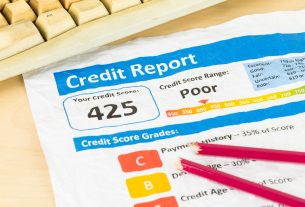Collecting on a small business debt can seem like an impossible task, especially when the borrower does not have the financial means to pay it back. That is why it is essential for business owners to understand the best methods for collecting outstanding debts from other businesses in order to stay financially secure and successful.
There are numerous strategies available for b2b debt collection, but understanding the proper steps to take when attempting to collect on a small business debt is key. Following these six steps will ensure that companies are able to successfully collect what they are owed without damaging their reputation or alienating customers: create a plan of action, communicate with the debtor, consider different payment options, document all communications, take legal action if needed and utilize reputable third-party collection agencies.
Analyze Situation
If your small business is owed money by a customer, it can be difficult to collect on the debt. Trying to get back what you’re owed while still maintaining a positive relationship with the customer can be tricky. Fortunately, there are steps you can take to successfully collect on the debt without jeopardizing your relationship. This article will analyze the situation and provide six steps for getting back what you’re owed in order to protect your business from losses due to unpaid debts.

The first step is understanding what rights you have as a creditor when collecting on an unpaid debt. Depending on the state where your small business operates, there may be certain regulations or laws that apply when attempting to recover funds from overdue customers. Additionally, businesses should understand their own policies regarding collection of past-due accounts and determine which strategies will work best for them based on their current situation and resources available.
Create Payment Plan
Creating a payment plan for small business debt can be tricky, but it doesn’t have to be. With a few simple steps, any business owner can successfully collect on their unpaid receivables and get back in the black. For those struggling to collect on a small business debt, here are six steps to creating an effective payment plan that will keep all parties satisfied.
First, it’s important to document the details of the agreement between you and your customer or client. That includes information like payment amounts and due dates as well as interest rates if applicable. This documentation should clearly outline what is expected from both parties and serve as reference in case of disputes down the line.
Next, set up an automated system for collecting payments that allows customers to make payments easily via credit card or bank transfer. This eliminates manual communication about payments which can lead to confusion or missed payments.
Contact Debtor
When a small business is owed money, it can be difficult to collect on the debt. Fortunately, there are steps that can be taken to increase the chances of success. The first step in successfully collecting a debt is to contact the debtor.
When contacting the debtor, it’s important to remain professional and courteous. Start by introducing yourself and explaining why you are calling. If possible, provide documentation or proof of the debt in writing before making any demands for payment. Make sure you state clearly how much is owed and when payment should be made. It’s also important to discuss what will happen if payment isn’t received by the due date, such as legal action or collection agency involvement. Finally, ask for an agreement from the debtor regarding repayment terms so that both parties have something in writing confirming their understanding of what was agreed upon verbally.
Offer Incentives
Offering incentives to customers for paying their debt is an effective way for small business owners to collect money that is owed. As a business owner, you may be hesitant to offer incentives because of the cost associated with them, however there are several advantages that may make incentives worth it in the long run. In addition, offering incentives can help build relationships with customers and encourage loyalty and future purchases.

When considering whether or not to offer an incentive, it’s important to weigh the costs against potential benefits. Offering discounts on current or future purchases can reduce the amount you’re owed while still providing value to your customer. You could also consider giving away products or services as rewards for paid-in-full balances.
Utilize Collection Agencies
As a small business owner, one of the most important practices you must maintain is timely debt collection. Despite best efforts to collect on time payments, there may be times when your customers fail to honour their obligations. In that case, it may be necessary to utilize collection agencies to recover outstanding debts.
Collection agencies are professionals who specialize in recovering overdue accounts and can help you get paid quickly. They can also help you develop sustainable debt management strategies for future prevention and protection from potential bad debt losses. With their guidance, you can better understand the process of collecting a commercial debt, including how much of the total amount is realistically recoverable and within what timeframe. Additionally, these professionals provide an array of services such as taking legal action against clients who refuse to pay or initiating negotiations that could result in payment arrangements for those having difficulty meeting their financial obligations.
Consider Legal Action
If your small business is having difficulty collecting on a debt, it can take a serious toll on your cash flow. Before considering legal action, there are certain steps you should take to try and resolve the dispute. The following 6 steps offer advice that will help you successfully collect on a small business debt and avoid costly litigation.
Every business may have different objectives when trying to collect unpaid debts, but all businesses should utilize letters of demand and other means of communication before resorting to legal action. It’s also important for businesses to research state laws so they don’t violate any regulations in their efforts to recoup money owed. With proper preparation, small businesses will be able to create an efficient system for collecting unpaid debt that minimizes the need for legal measures.


